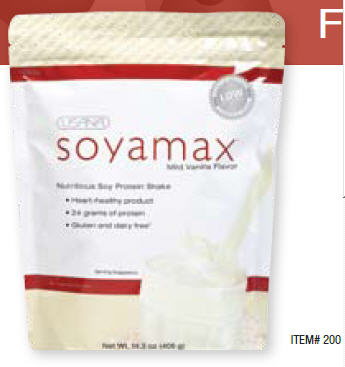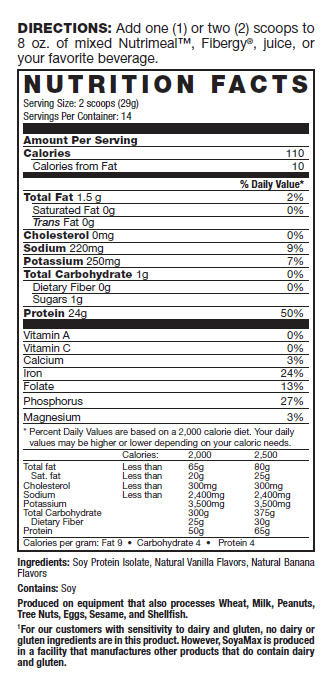Women Health Q&A
I’m in my 40s and I know menopause is just around the corner. Is there anything I can do now to prevent symptoms?
Sorry, researchers haven’t identified a non-drug way to prevent menopausal symptoms. But the first thing women should know is that menopause is a natural part of life and not something to dread. Some 30 percent of women sail through, while another one-third find symptoms tolerable and short-lived.
If I want to try soy, do I have to eat tofu or can I take a supplement?
You might try adding fermented soy such as tempeh or miso to your diet because those are more bioactive than other forms of soy. (Tempeh works well as a meat substitute; miso makes delicious dressings, soups, and teas). If you take soy isoflavone supplements, stick to doses of 50 to 70 milligrams daily. The safety of high-dose supplements is uncertain, and there is some concern that they could encourage the growth of estrogen-dependent breast cancer.
USANA Foods SoyaMax is formulated with soy protein isolate, which contains small amounts of many essential minerals, as well as other important compounds such as isoflavones. Isoflavones may support bone health by retaining calcium. USANA SoyaMax can also be added to cereals, baked goods, soups, and sauces to fortify the protein content.
Is there a combination of supplements that might be more effective than an individual product?
One trial showed a benefit to suing a combination of black cohosh and St. John’s wort, and there are patients who swear by that regimen. It’s something doctor might recommend for a woman who is healthy and not taking other medications. Just be aware that black cohosh is not for women with liver problems, and St. John’s wort interacts with many medications.
I’ve tried a variety of supplements, but they haven’t done a thing for my hot flashes. What can I do?
Talk to your doctor about low-dose hormone therapy, which is by far the most effective treatment for menopausal symptoms. The pendulum has swung back from not prescribing hormones at all to using them judiciously in those who really need them. Ask about the estrogen patch, which might be less likely to cause blood clots, especially if you are overweight and don’t smoke. And there is some research suggesting natural progesterone might be better tolerated than other progestins, though more research is needed. Your health-care provider can help you decide what’s best for you.
My doctor says I’m not a good candidate for estrogen because I have a history of blood clots. Are there any other prescription medications I can try?
Research suggests that the antidepressants paroxetine (Paxil and generic), venlafaxine (Effexor and generic), and citalopram (Celexa and generic), as well as the antiseizure drug gabapentin (Neurontin and generic), might help. Clonidine (Catapres and generic), a blood-pressure drug, appears to be less effective but might be a better choice for women with high blood pressure. All of those drugs can have side effects, so discuss the pros and cons with your doctor.



